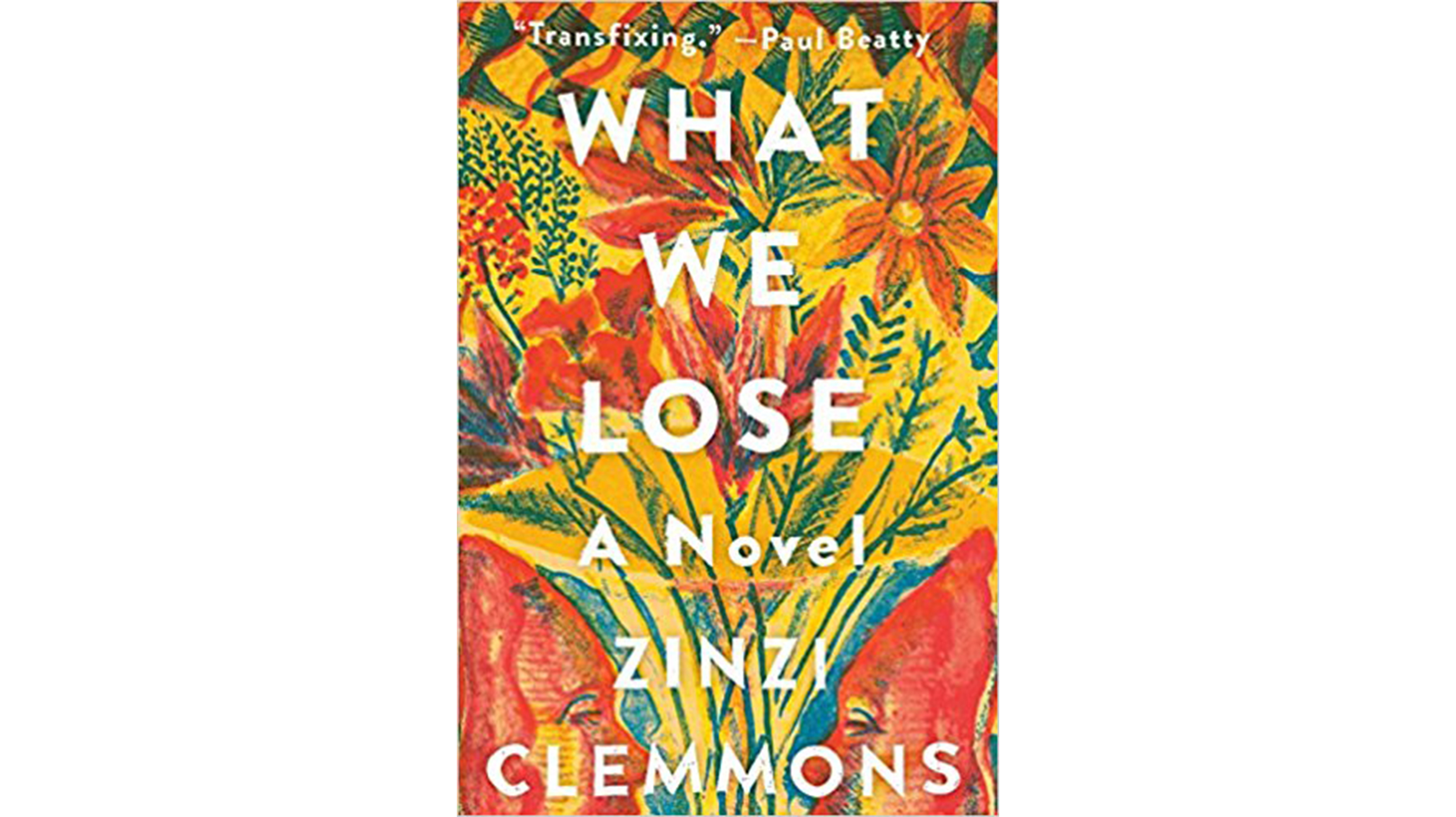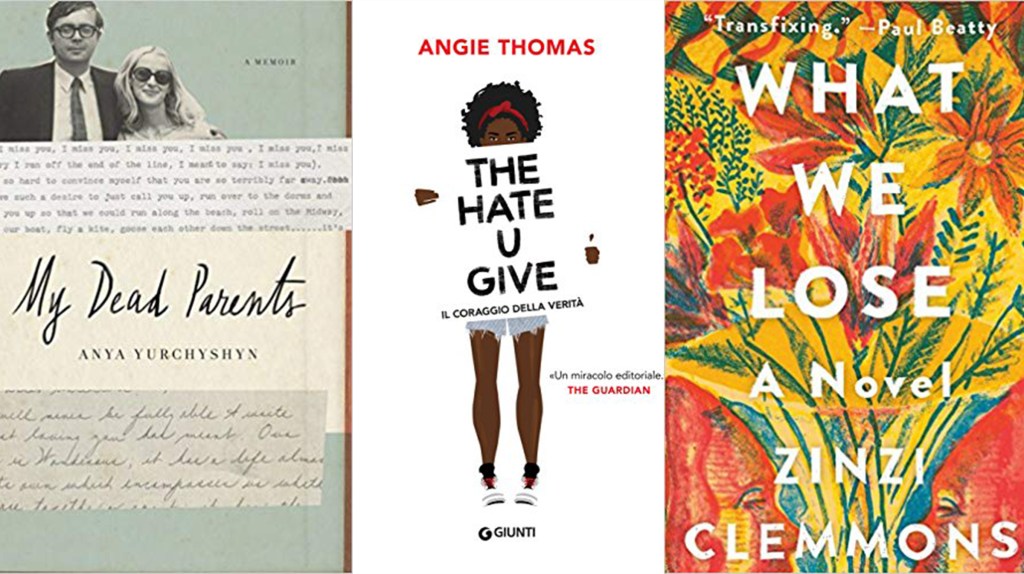For many of us, the last two years have been heavy with mourning.
There are those, like many in my community, who have been doled out the pain of enormous personal loss. And then there are those who are grieving more generally—for the election of Donald Trump, for Black victims of police killings, for murdered trans women and all the ways that American life can feel like an ongoing funeral. Perhaps it follows, then, that over the last two years, numerous incredibly insightful texts meditating on grief and loss have been published—some that grapple with our country’s collective mourning, others that focus on the intensely personal experience of the death of a loved one.
Videos by VICE
My panacea for pain has always been books. As James Baldwin wrote: “You think your pain and your heartbreak are unprecedented in the history of the world, but then you read. It was books that taught me the things that tormented me most were the very things that connected me with all the people who were alive, who had ever been alive.”
If, like me, you’d like to heed Baldwin’s advice and transcend into others’ pain—and eventual healing—read on for a list of new voices reorienting how we cope with death’s inevitable ending, and suggestions for when to read them.

Read The Incendiaries by R. O. Kwon to contemplate the emotional burdens we inherit
(Penguin Random House, July 2018)
The Incendiaries is a quiet, poetic book that does what its title promises: inflames. In this debut novel, R.O. Kwon offers a layered story of loss, faith, family, and love. Through the shifting perspective of four characters, she builds layers of narrative that swirl the reader continually deeper into the center of the novel: Phoebe’s internalized guilt and pain.
The narrative spans Phoebe’s formative years of college, during which she lives on the cusp of a childhood epitomized by tragedy and an adulthood defined by recklessness. She arrives at school wracked with guilt for her mother’s death, which leads her to eventually join a cult on campus and compromise the few healthy relationships she has. The Incendiaries positions grieving as a cyclical process of “if and if again,” showing how mourning forces us to forever consider the potential outcomes of what could have been. A moving, confessional, lyrical model of brevity, this book singes by pinpointing the deeply incoherent ways we can reactively wrong each other once in the wake of an offense.

Read Rabbit Cake by Annie Hartnett to learn how to laugh in the face of tragedy
(Tin House, March 2017)
Books about death usually aren’t delightful, funny, or easy to read. Rabbit Cake, Annie Hartnett’s debut novel, defies those conventions. Instead of emotion, the narrator, 10-year-old Elvis Babbit, tries to use logic to confront her grief. Like a mathematician, she puzzles her way through her mother’s death, her sister’s dangerous sleepwalking, her father’s profound grief and subsequent depression, and her guidance counselor’s bumbling attempts at providing her healing therapy. Elvis does not need therapy, though; what she needs are answers, and ultimately, she finds them in herself: “Of course, there will always be things I wish Mom was around for, like when I got an A-plus on my first Latin test. Dad says Latin is a dead language and wasn’t really impressed, he wants me to take Spanish instead. Languages become dead after people stop using them. I still use Mom, the things I learned from her.” This book is quick-paced, laugh-out-loud funny, wise, and warm. We need more books like this one, either by Hartnett or others, to find joy in tragedy and to accept sweeping, sudden change—models that teach us that we are the answer to our own hardship.

Read Rebellious Mourning, edited by Cindy Milstein, to radically redefine grief
(AK Press, Sept 2017)
This powerful and provocative collection of essays, out last year from AK Press and edited by Cynthia Milstein, pushes us to shift our practice of grieving from an individual to a collective process as a way to imagine and create a humane, resilient society that is founded in community rather than independence. The collection suggests that the shared pain and healing of grieving can move us toward radical social change. As Mirtha Luz Perez Robledo writes in the included essay “In Self-Defense, In Defense of Memory”: “Be it in grief or resistance, solidarity can only manifest in the collective.”
The essays and poetry in Rebellious Mourning, all written by organizers, take us from the Palestinian struggle for liberation to the confluence of the AIDS crisis and gentrification in the mid-1980s East Village, to Detroit, to Oaxaca, to police brutality, to disability. By virtue of their collective scope and the ways they intersect across experiences of oppression, the essays themselves demonstrate solidarity, making clear that, in our current, unjust world, we are all grieving. Particularly moving sections include Milstein’s own essay in which reflection on the deaths of her parents is woven into a discussion of state-sanctioned disappearance via “cops and condos” in San Francisco; A.J. Withers’ reflection on practices of mutual caretaking and the difficulty of doing disability justice work in queer communities; and Budour Hassan’s essay on Israel’s withholding of the slain bodies of Palestinian resistance fighters.

Read My Dead Parents by Anya Yurchyshyn to consider what truly makes a life and legacy
(Penguin Random House, March 2018)
Anya Yurchyshyn has accomplished a memoir that is both narrowly personal and expansively compelling; it is not every year that a grief memoir like hers is born into the world. My Dead Parents follows her journey as she cleans out her childhood home and discovers secrets about their lives, undoing the narratives that she had spun about her father, her mother, and their seemingly broken marriage. “I saw cleaning out the house as my last goodbye to [my mom] and my dad, and I was eager to finally be rid of them,” Yurchyshyn writes. “I thought I would box up what I wanted, toss what I didn’t, and avoid being caught by what had become its most potent force—sadness.” Yurchyshyn is caught, instead, by the desire to piece together the life she knew and the clues she finds into a clear story of her family. This book teaches us that, although we all may know the elements of our parents’ love story, we may ultimately never have full access to the true details of their courtship or partnership, especially when they are no longer around to narrate it to us.

Read The Hate U Give by Angie Thomas to consider teenage grief in a national landscape of police brutality
(Harper Collins, February 2017)
The Hate U Give, a young adult novel, should be read by all young people and all adults. Sixteen-year-old protagonist Starr Carter grapples with the loss of a friend to police brutality as she attempts to navigate the incongruent parts of her identity shaped by a racist and classist America; Starr, who is Black, attends a predominantly white private school with a wealthy student body vastly unlike the kids who live on her block. After the death of her childhood best friend, Starr is forced to confront the untrue narratives told about him and her community by the media, and ultimately lift herself above them. The Hate U Give vividly shows us how institutionalized oppression manifests in the personal grieving process. After Starr encounters each of the five stages of grief, Thomas writes us into a sixth phase: politicization. Starr goes public, sharing true stories of the life her friend lived and advocating against police brutality. This book is timely, sincere, and confrontational.

Read What We Lose by Zinzi Clemmons to relate to a first-person narrative that looks at loss through the lens of identity
(Penguin Random House, June 2018)
What We Lose is a diasporic tale merging identity and loss, motherhood and childhood, identity and society in America. Through forthright first-person narration, Clemmons offers evocative vignettes on growth and belonging. As a mixed-race woman growing up in Pennsylvania and soon emerging into college and life beyond it, protagonist Thandi is unsure of where she belongs. Once her mother dies, she must transcend the shadow of her maternal hold over her and find her own place—as a student, woman, and ultimately, as a mother herself. This is a book of duality, one that laces legacy with loss.

Read Grief is the Thing With Feathers by Max Porter to muse poetically on loss
(Graywolf Press, June 2016)
Porter’s Grief is the Thing With Feathers is a metaphoric entryway into the weight that loss puts on our lives. The pages contain poetic vignettes that have stanzas and line breaks, but employ novelistic features of plot and narrative arc, spinning strange and dreamy evocations, rich in imagery and description. A recently-widowed father is visited by a crow, an embodied black beacon of loss. His two young boys try to deal with the loss of their mother as their father grapples with his psychic delusions, and the family’s dynamic is strained. The poems shift perspective between father, sons, and crow, and are all at once surprising, terrifying, and poignant.




